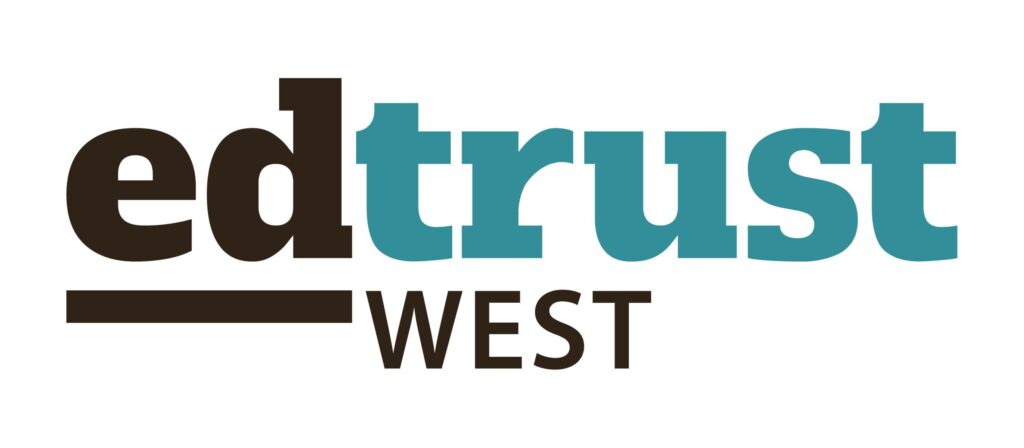OAKLAND, CA (September 6, 2012) On the heels of the release of the 2012 STAR testing data, a startling new infographic and presentation from The EdTrustWest (ETW) exposes previously hidden gaps in Californias college and career pipeline, impacting more than four million students. Combining new data from the U.S. Office of Civil Rights (OCR) with data from previous ETW reports, the analysis reveals how low-income, Latino and African-American students in California are getting less of everything they need to achieve their college and career dreams. As a result, nearly a third of these students fail to graduate from high school and only 14% of those who do graduate enter the University of California (UC) or California State University (CSU) system. According to the analysis, low-income students in Californias schools receive:
- Less Funding: California school districts with the most low-income students receive $620 less per student from state sources than the states wealthiest school districts. For a district of 10,000 students that difference amounts to more than $3.7 million a year;
- Less Effective Teaching: Low-income, African-American, and Latino students in Californias largest school district are twice as likely to be assigned the least effective teachers. Statewide these students are also more likely to be in schools with higher rates of teacher absenteeism (10 or more days a year) than students in wealthy districts;
- Less Learning Time: School districts serving Californias highest need students are more likely to have their school year cut. Low-income students and students of color are also far more likely to lose days of instruction through school suspensions;
- Less Rigorous Curriculum: Low-income, African-American, and Latino students have disproportionally low rates of access to rigorous AP and STEM coursework such as physics and advanced math.
California will need more than five million college graduates and certificate holders by 2025 just to meet the needs of our economy. To achieve this goal, our leaders must make a commitment to college access and completion starting in the earliest grades, said Dr. Arun Ramanathan, Executive Director of The EdTrustWest. We simply can’t afford to shortchange the majority of our state’s students without doing long-term damage to California’s prosperity.
For a deeper look into the college and career pipeline, ETW has released Repairing the Pipeline: A Look at the Gaps in Californias High School to College Transition. This report reveals how an array of high-poverty schools in the state are bucking the overall trends and posting high graduation and college attendance rates.
Similarly, earlier ETW reports have highlighted school districts and charter schools that have taken the leadership to correct the education inequities that Sacramento has failed to address. This includes the work of Los Angeles Unified School District, Lucia Mar Unified, Aspire Public Schools, Green Dot Public Schools, Partnerships to Uplift Communities (PUC), and Alliance College-Ready Public Schools to improve teaching effectiveness. This also includes the efforts of charter schools such as KIPP, Linked Learning academies, and school districts throughout the state to maintain and extend critical instructional time. And it also includes the work of Fresno and Sacramento City Unified School Districts to improve working conditions for teachers and the efforts that San Jose, Oakland, and San Diego Unified have undertaken to provide access to A-G college-ready coursework for all students. “A-G” is the course sequence required by our state’s public universities.
Once again, we enter a new school year without a real budget solution or comprehensive education reforms and the possibility of catastrophic education cuts on the horizon. Yet, while Sacramento spins in circles, district and charter schools serving high-poverty communities throughout the state have taken the lead in implementing critical education reforms to improve the college and career readiness of their students, said Ramanathan. They represent Californias best hope for a better future. Its time for our state leaders to learn from their example and use their innovative work to benefit all of Californias children.
###
PRESENTATION: Californias Education System: Is it Fair?
Instructions: 1. To begin, click on the “arrow” button for the presentation to download. 2. After it downloads, click on the right “arrow” button again to begin the presentation. 3. With each click of the right arrow button, the presentation will move forward to a new section of the infographic. Additional Features: Click on the “More” button on the right to get a “full screen” version of the presentation or to have it autoplay” for you. To download a printable version of the infographic, click here.
About The EdTrust—West
The EdTrust—West works for the high academic achievement of all students at all levels, pre-k through college. We expose opportunity and achievement gaps that separate students of color and low-income students from other youth, and we identify and advocate for the strategies that will forever close those gaps.

